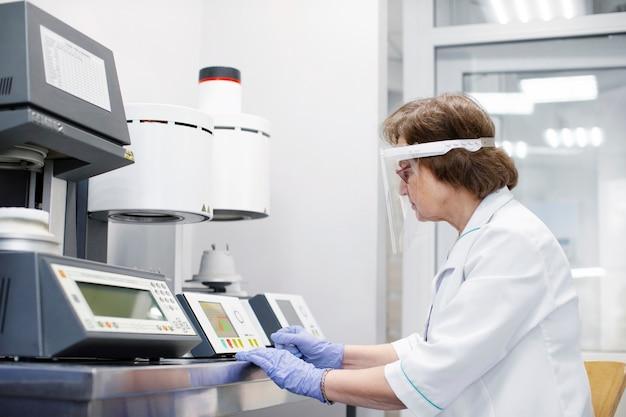If you’re passionate about healthcare and have a knack for science, you may have considered pursuing a career in medicine. But what if you already have a biomedical science degree? Can you still fulfill your dream of becoming a doctor? In this blog post, we’ll explore the possibilities of entering the field of medicine with a biomedical science degree.
From the requirements for biomedical science to the subjects covered in this field, we’ll delve into the details to help you understand the path ahead. We’ll also address common questions like whether math or chemistry is necessary for biomedical science, and if a biomedical engineer can become a surgeon. If you’ve ever wondered about the difference between biomedicine and medicine or the prospects for biomedical scientists in hospitals, we’ve got you covered.
So let’s get started on this exciting journey of combining the worlds of biomedical science and medicine to see if your aspirations can become a reality.

Can You Pursue a Medical Career with a Biomedical Science Degree?
If you’ve ever wondered whether you can dive headfirst into the world of medicine armed with a biomedical science degree, then boy, do I have some enlightening news for you! The short answer is a resounding YES! But let’s explore the ins and outs of this fascinating career pathway and uncover all the juicy details.
Taking the Road Less Traveled
So, you’ve earned yourself a snazzy biomedical science degree, and now you’re itching to discover your options. Well, my friend, you’re in for a wild ride! While many biomedical science graduates choose to pursue careers in research or industry, there’s a whole other avenue to explore – medicine! That’s right, by leveraging your strong foundation in the biological sciences, you can embark on a thrilling journey to become a doctor.
The Pathway to Medicine
Now, let’s get into the nitty-gritty of how you can harness your biomedical science degree to kickstart your medical career. The most common route is to pursue further education by enrolling in a postgraduate degree program, such as a Doctor of Medicine (MD) or a Doctor of Osteopathic Medicine (DO). These programs typically span four years and equip you with the essential knowledge and skills needed to practice medicine.
Building Blocks of Success
While your biomedical science degree has equipped you with a solid foundation, there may be additional prerequisites you’ll need to fulfill before gaining admission into a medical program. These requirements vary between institutions but often include coursework in subjects like chemistry, biology, physics, and even good old mathematics. So, it’s a good idea to check the specific prerequisites for the medical schools you’re interested in.
The MCAT: Gateway to Your Medical Dreams
Ah, the infamous MCAT – the Medical College Admission Test. This standardized exam is the proverbial gatekeeper to medical school, testing your knowledge in areas such as biology, chemistry, psychology, and critical thinking. It’s essential to prepare thoroughly for this exam to maximize your chances of securing a spot in a medical program.
A Grueling Journey Worth Embarking On
Let’s face it, pursuing a medical career is no walk in the park. It requires dedication, perseverance, and a whole lot of caffeine. But fear not, my fellow medical hopeful! The reward at the end of this grueling journey is a career filled with meaningful connections, the opportunity to save lives, and the chance to utter those magical words, “Trust me, I’m a doctor!”
The Versatility of Biomedical Science
One of the fantastic aspects of a biomedical science degree is its versatility. Even if you decide not to pursue a medical career in the traditional sense, a world of possibilities still awaits you. You could venture into fields like medical writing, healthcare administration, clinical research coordination, or even medical sales. So, whether you choose the doctor’s coat or opt for a different journey, your biomedical science degree opens doors galore.
Wrapping It All Up
So, my curious friend, the answer to whether you can go into medicine with a biomedical science degree is a resounding YES! By furthering your education, tackling the MCAT, and fulfilling any additional prerequisites, you can transform your dream of becoming a doctor into a reality. But remember, even if the stethoscope doesn’t call your name, your biomedical science degree still grants you the power to make a significant impact on the world of healthcare. The choice is yours!

FAQ: Can you go into medicine with a biomedical science degree?
Is math required for biomedical science
Yes, math is an integral part of biomedical science. Just like a cake needs flour, eggs, and a dash of love, biomedical science requires a sprinkle of math. From analyzing data to understanding complex equations, having a good grasp of math will definitely come in handy during your biomedical science journey.
Is biomedical science a good career
Absolutely! Biomedical science opens doors to a world of exciting career opportunities. Whether you’re passionate about research, clinical trials, or healthcare management, a biomedical science degree can give you the foundation you need to make a positive impact on people’s lives.
What are the requirements for biomedical science
To embark on a thrilling biomedical science adventure, you’ll typically need a high school diploma or equivalent, along with a passion for science and a thirst for knowledge. Different universities may have specific requirements, so it’s always a good idea to check their websites for the most up-to-date information.
What are the subjects in biomedical science
Buckle up, because the subjects in biomedical science will take you on a journey through the fascinating realms of biology, chemistry, anatomy, physiology, genetics, and more. You’ll dive deep into the inner workings of the human body and unlock the secrets of life itself. It’s like being part detective, part explorer, and part superhero!
Do I need chemistry for biomedical science
Absolutely! Chemistry is the bread to biomedical science’s butter. You can’t truly understand the intricate workings of the human body without a solid foundation in chemistry. From studying chemical reactions to unraveling the mysteries of molecules, chemistry will be your trusty sidekick throughout your biomedical science education.
Can a biomedical engineer become a surgeon
Well, it’s not as simple as “transforming” into a surgeon like a superhero changing costumes. While biomedical engineers play a crucial role in revolutionizing medical technology, if you have your heart set on becoming a surgeon, you’ll generally need to follow the more traditional path of completing medical school and surgical residency.
How many years does it take to be a biomedical scientist
Patience, young padawan! Becoming a biomedical scientist typically requires a Bachelor’s degree, which takes around four years to complete. If you have a burning desire to delve deeper and uncover the secrets of science, you can also pursue a Master’s or Ph.D. program, adding a few more years to your scientific voyage.
Can I become a doctor with a biomedical science degree in the UK
In the UK, obtaining a biomedical science degree can lay a solid foundation for a medical career but doesn’t guarantee you the title of “doctor” just yet. To don the coveted white coat and stethoscope, you’ll need to pursue a medical degree program, such as Bachelor of Medicine, Bachelor of Surgery (MBBS), after completing your biomedical science degree.
Can you go into medicine with a biomedical science degree
Absolutely! A biomedical science degree can be a fantastic stepping stone toward a medical career. With the right prerequisites and additional qualifications, you can apply to medical school, where you’ll embark on a rigorous journey to become a full-fledged doctor capable of making a real difference in people’s lives.
How hard is a biomedical science degree
Well, let’s just say it’s no walk in the park, but it’s also not impossible. Like any scientific endeavor, a biomedical science degree requires dedication, hard work, and a sprinkle of resilience. It may present its fair share of challenges, but remember, nothing truly worth achieving comes easy. So, roll up your lab coat sleeves and let the scientific adventure begin!
What’s the difference between biomedicine and medicine
Ah, the age-old question! While biomedicine and medicine share some similarities, they also have their differences. Biomedicine focuses on the scientific study of human health and diseases, where scientists work behind the scenes, contributing to the development of new treatments and therapies. Medicine, on the other hand, involves the direct care of patients, with doctors diagnosing and treating illnesses. Think of it as a dynamic duo, working hand in hand to improve healthcare for all.
Do biomedical scientists work in hospitals
Absolutely! Biomedical scientists are like the unsung heroes of the healthcare world. While they may not be sporting stethoscopes and white coats on the frontlines, their work is critical to patient care. They conduct tests, analyze samples, and provide crucial information to doctors, helping in diagnosing and managing various diseases. So, while they may not be “doctors” in the traditional sense, their impact on healthcare is immeasurable.
What does a biomedical engineer do
Ah, the intersection of science and engineering! Biomedical engineers are the masterminds behind innovative medical technology. They design, develop, and improve medical devices, equipment, and techniques to improve patient care. It’s like being a wizard in a lab coat, creating cutting-edge solutions to help doctors save lives and enhance the quality of healthcare.
Do biomedical engineers pay well
Well, let’s just say they can expect a solid paycheck that won’t disappoint. The combination of engineering know-how and expertise in the medical field is highly valued, putting biomedical engineers in a favorable position when it comes to compensation. So not only will you be making a difference in people’s lives, but you’ll also have a pretty nice bank account to match!
And there you have it! An FAQ-style guide to quench your thirst for knowledge about going into medicine with a biomedical science degree. Remember, the world of healthcare is ever-evolving, and your journey may take twists and turns along the way. Embrace the adventure, stay curious, and let the infinite possibilities of medicine and biomedical science unfold before your eyes!
